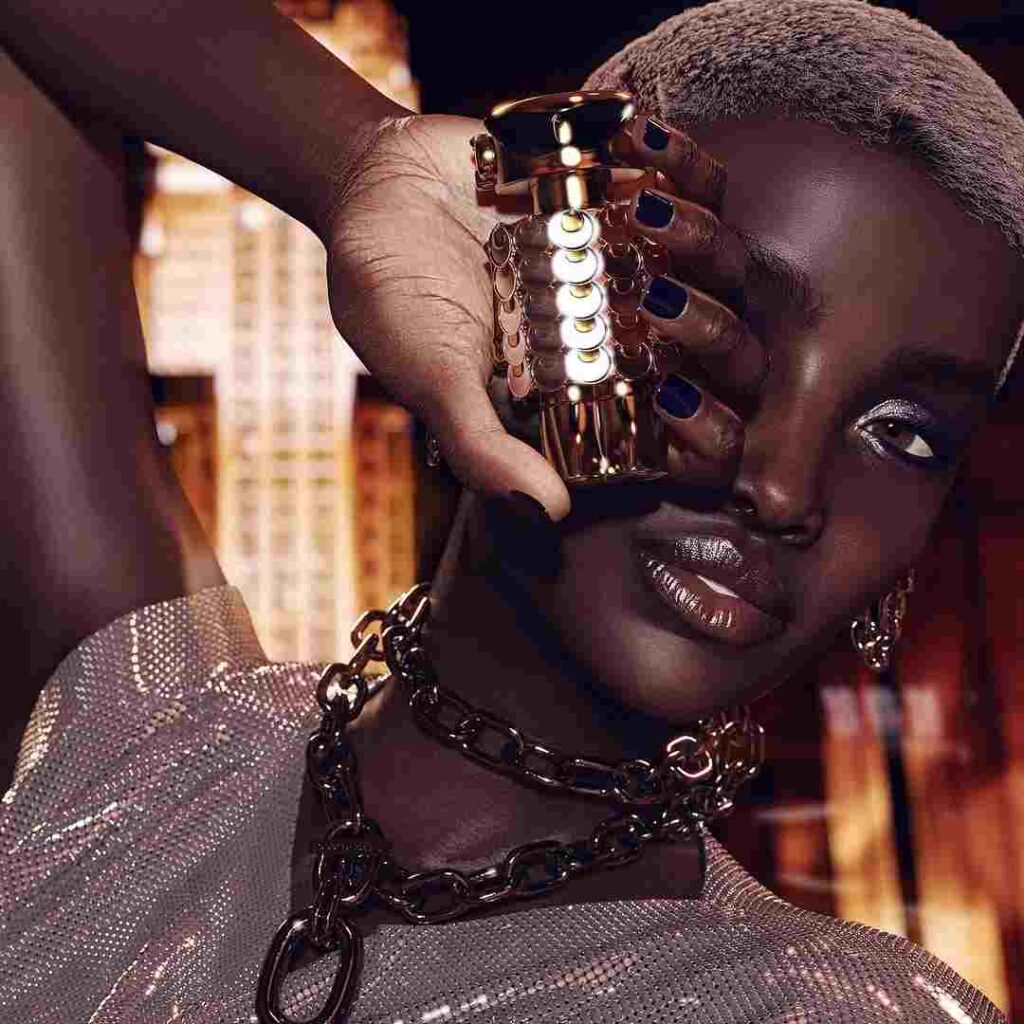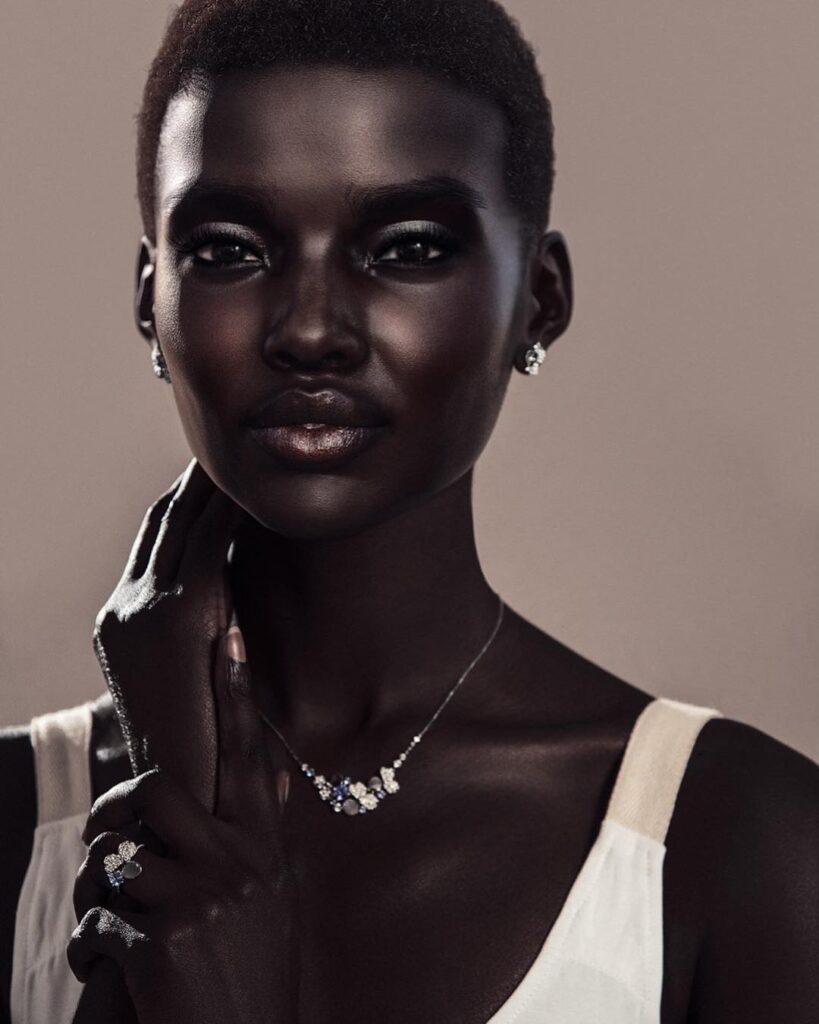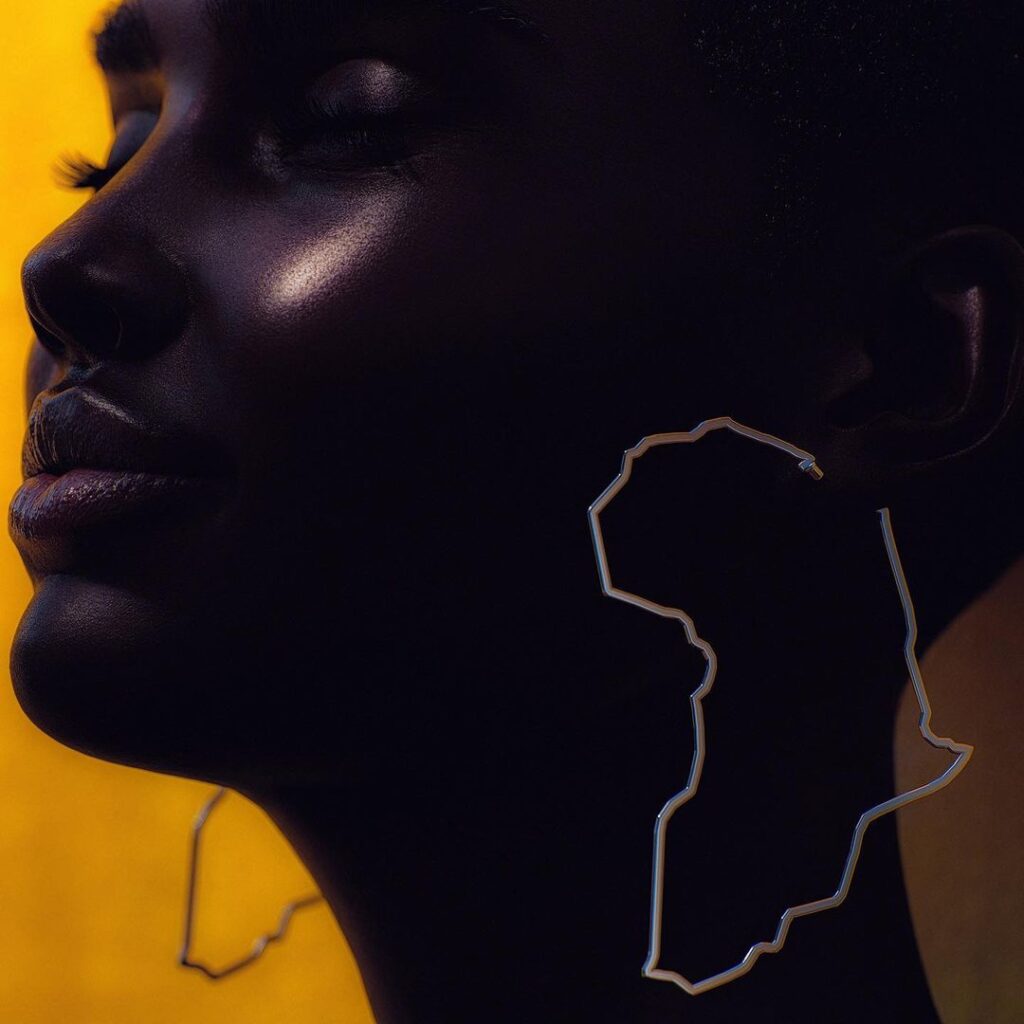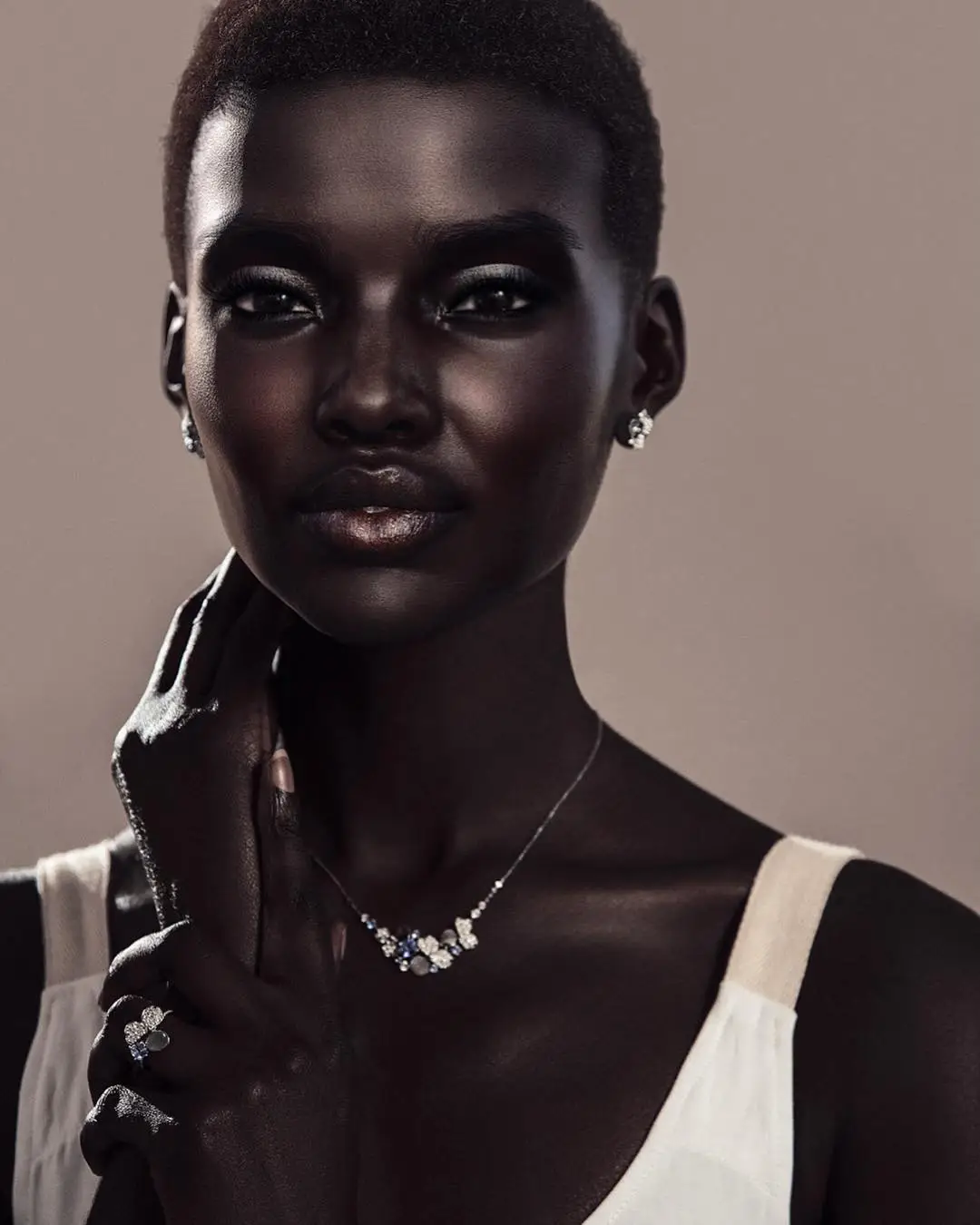Due to the current influx of AI-generated versions of real-life photos through applications such as Lensa AI, it’s even more difficult to distinguish between these images and AI-generated images. Let alone AI black models.
Across the world, creatives and the general public are embracing AI as a means to simplify their lives. However, when creators use AI indirectly to represent a minority such as the black community, there is controversy about the concept behind the creation. Shudu Gram, an AI black model, is one such example.
Become an insider. Subscribe to our newsletter for more top trending stories like this!
Who is Shudu Gram?

On a closer look, you’ll believe Shudu Gram is human considering the perfection of her artistry. From her luminous dark-brown skin and perfectly symmetrical features, Shudu is beautiful.
Shudu Gram is the world’s first digital supermodel, featured in various brands such as Fenty Beauty, a skincare product label by Rihanna.
Introduced to the world as a South African princess Barbie from the Ndebele tribe, and strategically joining conversations on black women and people of color, Shudu’s communications on social media follow hashtags such as #blackisbeautiful, #melanin, and #blackgirlsrock.
As a platform that features pictures and videos mostly, Shudu built a huge following on her Instagram account within days, growing her following to 241K followers as of March 2024.
Within the first two years of her career, she was featured in Vogue, Hypebeast, V Magazine, and Women’s Wear Daily. She was also on the cover for Balmain and Ellesse, gracing the red carpet at the 2019 British Academy Film Awards (BAFTA) wearing bespoke garments by Swarovski.
With AI dark skin models like Shudu, it’s noteworthy to point out that she appears Black and an indigenous African. Wison’s background influenced the European features of Shudu.
As her following grew, so did questions about her started popping up. She is not just an AI-generated black model, but her creator is white. People ask, “Why would a white 28-year-old man create an AI Black model?” Questions like this sparked the Shudu Gram controversy conversations.
Shudu Gram Controversy
Cameron-James Wilson, a British photographer who is a white male and now 35 years old, is the founder of Shudu and other black AI models. Black people think Wilson is only in it for the money he makes from Shudu. He, however, argues otherwise.
Shudu Gram is a work of art, according to him. Wilson finds inspiration from a significant movement involving models with dark complexions as he attempts to bridge the gap between the modelling profession and his creativity.

Unbeknownst to photographer Cameron James-Wilson, his artwork imitates a pretty controversial history. A white artist, Joe Scanlan investigated “the cult of demographic authenticity”. He used the avatar Donelle Woolford, whom numerous black women portrayed.
The Yams Collective, a group of black artists, withdrew in response to Scanlan’s selection for the 2014 Whitney Biennial. They believed the possibility that AI would increase black artists’ “representation” would further diminish black personhood and belittle the idea of representation as a political or collective endeavor.
Wilson didn’t appear to have considered the possibility that he might be taking part in this legacy of racial appropriation. He, therefore, welcomes any argument or conversation that his ai dark-skinned women models start.
Wilson’s supporters contend that the tradition started by games like The Sims and Second Life, allowing internet users to design their online avatars for almost two decades, justifies Wilson’s creation.
Shudu is compared to more modern avatars in this way, such as the character in the music video for the song “Frontline“. The song is composed by the Ethiopian-American singer Kelela, where the artist’s image is depicted in chunky mid-aughts Sims graphics.
Become an insider. Subscribe to our newsletter for more top trending stories like this!
Black celebrities like Michael B. Jordan, Alicia Keys, Tyra Banks, and Naomi Campbell were among Shudu’s admirers. Naomi Campbell has previously criticized the fashion industry for its historical underrepresentation of black people. She says of black models, “We don’t want to be a fad.” How many women of color are Wilson’s digital model’s detractors?
How Did Wilson Create Shudu Gram?

Wilson spent five years exploring London he returned to his hometown of Weymouth and made the decision to concentrate on art rather than money.
He experimented with painting Barbie dolls’ faces and arranging them to resemble real models. Later, Wison explored the free Daz 3D program, which is patronized among special effects creators and offers an “asset store” where users buy people and things for virtual settings.
Before moving on to Daz 3D and humanoids, he practised with the 3-D software Blender, generating “cups of coffee and pastries.” Shudu intentionally mimics real-life models; Iman’s stunning deep sockets inspire her eyes. Born Zara Mohamed Abdulmajid, Iman is a Somali fashion model.
The limited-edition Barbie Princess of South Africa, who, like Shudu, wears neck jewellery.
What Does the Future Look Like for Black Models?
Shudu raises several issues regarding diversity versus fetishism in the fashion industry and the emergence of virtual models.
Is Wilson’s ideal fantasy of Shudu just a representation? Shudu’s role in the black community may seem charitable, but is she just another example of how white people have romanticized other cultures for a long time?
In considering these issues, it’s important to keep in mind there aren’t many opportunities available for black models in the industry. And Grams’s presence will make it even more difficult.
Read Also: 10 Organizations That Pledge Full Support to the Black Tech Community
Interested in watching the full article video? See below. Subscribe to our YouTube channel for more original, inspiring videos on the black experiences.
Nearly 80% of consumers visit directories with reviews to find a local business. List your business for free in our exclusive Spotcovery Black-Owned Business Directory.
Spotcovery offers unique and fresh daily content on Black culture, lifestyle, and experiences. We talk about everything black, black people, black-owned and black-owned businesses. We also deliver authentic and relevant content that will inform, inspire, and empower you! The future of black media is critical to today’s black experience! Our primary audience includes African Americans, Africans, Afro-Caribbean, and people of African heritage. Black culture is for the culture!
Become an insider. Subscribe to our newsletter for more top trending stories like this!





